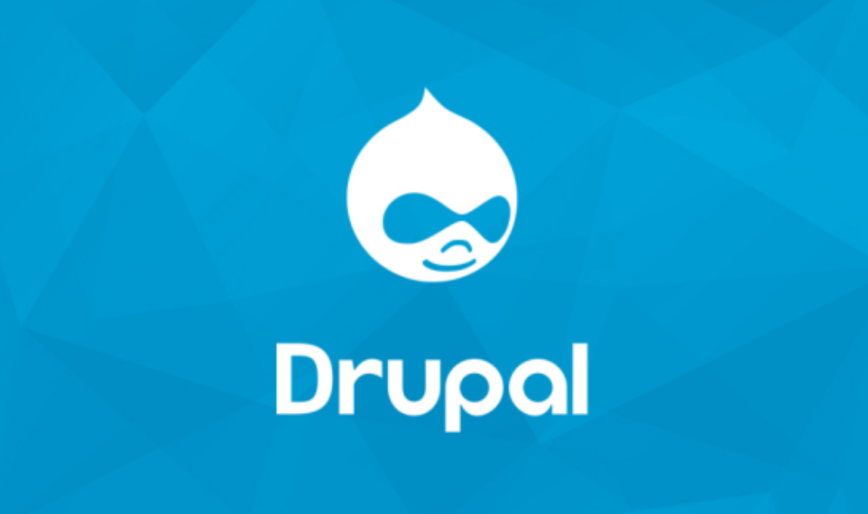What is Drupal used for – In the vast landscape of content management systems (CMSs), Drupal stands out as a powerful and versatile platform. This article explores the various applications and benefits of Drupal, highlighting its significance in website development, content management, e-commerce, community platforms, and government websites. If you’re curious about Drupal and its use cases, keep reading to gain valuable insights into this robust CMS.
1. Introduction
In the digital age, where websites play a pivotal role in business growth and online presence, choosing the right CMS becomes crucial. Drupal, an open-source CMS, offers a wide array of features and functionalities that make it a preferred choice for individuals, businesses, and organizations alike. Let’s delve deeper into understanding Drupal and its capabilities.
2. Understanding Drupal
What is Drupal?
Drupal is a robust and highly customizable content management system that empowers users to create, organize, and manage digital content efficiently. It provides a framework for building websites, web applications, and online communities. Released in 2000, Drupal has evolved over the years and gained immense popularity due to its flexibility, scalability, and extensive module ecosystem.
History of Drupal
Drupal was created by Dries Buytaert, a Belgian software developer, as a message board and gradually transformed into a CMS. It has since grown into a vibrant open-source project with a dedicated community of developers and contributors worldwide.
Key Features
- Modularity: Drupal’s modular architecture allows users to extend its functionality by installing and configuring various modules.
- Content Management: Drupal provides a robust content management system that enables easy creation, organization, and publishing of content.
- Flexibility: The platform offers great flexibility in terms of design, content types, and workflows.
- Scalability: Drupal is capable of handling high-traffic websites and can scale as per the growing needs of businesses.
- Security: With its strong emphasis on security, Drupal has an active security team that releases regular updates and patches.
- Multilingual Support: Drupal provides built-in tools for creating multilingual websites, making it suitable for global audiences.
- Active Community: The Drupal community is highly active, offering support, sharing resources, and contributing to the platform’s development.
3. Drupal’s Applications
Drupal’s versatility extends to a wide range of applications, making it suitable for various industries and purposes. Let’s explore some of the key areas where Drupal excels:
Content Management
With its robust content management capabilities, Drupal enables businesses and organizations to create, organize, and publish content effectively. It offers features like content versioning, customizable workflows, and easy collaboration, making it an ideal choice for content-heavy websites.
Website Development
Drupal provides a solid foundation for website development, offering a wide range of themes, templates, and modules that facilitate the creation of visually appealing and feature-rich websites. Its flexible architecture allows developers to build custom websites tailored to specific requirements.
E-commerce
Drupal’s modular architecture and integration capabilities make it a suitable platform for e-commerce websites. With modules like Drupal Commerce, users can create online stores, manage products and inventory, and facilitate secure transactions.
Community Platforms
Drupal’s inherent community-building features make it an excellent choice for creating online communities and social networking platforms. It offers tools for user management, discussion forums, user-generated content, and social integration, fostering engagement and collaboration.
Government Websites
Governments worldwide rely on Drupal for their online presence. Drupal’s security, accessibility, and multilingual capabilities make it an ideal CMS for government websites. It enables government agencies to provide essential information, services, and engagement opportunities to citizens.
4. Benefits of Drupal
Drupal offers a range of benefits that contribute to its popularity and adoption across industries. Let’s explore some of the key advantages:
Flexibility
Drupal’s flexible architecture allows users to customize and tailor the platform to their specific needs. It provides the freedom to create unique designs, content structures, and workflows, empowering businesses to create websites that align with their brand identity and objectives.
Scalability
Drupal’s scalability is a significant advantage for businesses that anticipate growth. It can handle high-traffic websites, ensuring optimal performance and user experience even with increased visitor numbers. Drupal’s scalability makes it a long-term solution for businesses looking to expand their online presence.
Security
With cybersecurity threats becoming increasingly prevalent, website security is paramount. Drupal’s active security team releases regular updates and patches to address vulnerabilities promptly. The platform’s robust security features protect websites and user data, providing peace of mind to website owners.
Customization
Drupal’s modular architecture and extensive module library allow users to customize their websites’ functionality easily. From adding social media integration to implementing advanced search features, Drupal offers a vast ecosystem of modules to enhance website capabilities without extensive coding.
Multilingual Support
In an interconnected world, catering to global audiences is essential. Drupal’s built-in multilingual tools make it easier to create and manage websites in multiple languages. This feature is especially valuable for businesses operating in diverse markets and targeting international audiences.
Active Community
Drupal boasts a vibrant and supportive community of developers, contributors, and enthusiasts. The active community ensures regular updates, extensive documentation, and a wealth of resources to aid users in leveraging Drupal to its fullest potential. The community also provides forums and events for knowledge sharing and networking.
5. Drupal vs. Other CMSs
While Drupal is a powerful CMS, it’s essential to compare it with other popular CMSs to understand its unique strengths. Here’s a brief comparison of Drupal with other CMSs like WordPress and Joomla:
- Drupal vs. WordPress: Drupal offers greater scalability, security, and customization capabilities compared to WordPress, making it a preferred choice for complex websites and enterprise solutions.
- Drupal vs. Joomla: Drupal and Joomla are both powerful CMSs, but Drupal’s modular architecture, multilingual support, and larger community make it a preferred choice for enterprise-level websites and complex applications.
6. Conclusion
Drupal, with its robust features and versatility, serves as a valuable tool for website development, content management, e-commerce, community platforms, and government websites. Its flexibility, scalability, security, and active community make it a go-to choice for individuals, businesses, and organizations seeking a powerful CMS solution. Embrace Drupal’s potential and unlock endless possibilities for your online presence.
7. FAQs
1. Is Drupal suitable for small businesses or personal websites?
Yes, Drupal can be used for small businesses and personal websites. Its scalability and flexibility allow businesses to start small and expand their websites as they grow.
2. Is Drupal difficult to learn and use?
Drupal has a steeper learning curve compared to some other CMSs, but it’s extensive documentation and supportive community make it easier for users to get started and become proficient with the platform.
3. Can Drupal handle large-scale websites with high traffic?
Absolutely. Drupal’s scalability makes it capable of handling large-scale websites with high traffic. Its modular architecture and caching mechanisms optimize performance, ensuring a smooth user experience.
4. Can Drupal be integrated with third-party applications and services?
Yes, Drupal offers extensive integration capabilities. It can be easily integrated with various third-party applications, services, and APIs, allowing businesses to extend their website’s functionality.
5. Is Drupal a free and open-source CMS?
Yes, Drupal is an open-source CMS distributed under the GNU General Public License (GPL). This means it is free to download, use, modify, and distribute.


